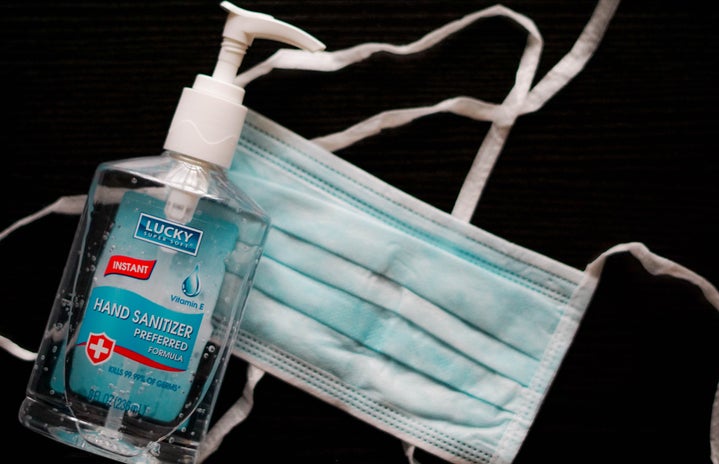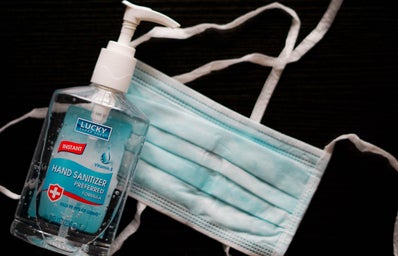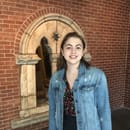As of September 2020, it has been about six months since coronavirus cases began rising exponentially in the United States, so I wanted to write about my experiences and thoughts as an essential worker at an assisted living home. In no way do I intend to compare my experiences to that of the doctors and nurses on the frontlines – I only wish to provide my perspective as someone who helps take care of our most vulnerable population.
After my school, Simmons University, sent us home for the rest of the semester, I returned to my job back at home. I had been working in the dining room at that assisted living home for two years before college, but was asked to work in the laundry room because the housekeeping department was understaffed.
At that time, schools, restaurants, and of course, long-term care facilities, were already taking precautions to prevent outbreaks of the coronavirus. For my workplace, that meant masks for every staff member and resident in our building – collectively over one hundred and fifty – but only one new one per week (At the time, we didn’t have enough to change them daily). No visitors were allowed, and all group activities were canceled. This not only included exercise classes, game and movie nights, but even meal times in the dining room. Residents were confined to their apartments for every meal and unable to socialize with each other.
This last part was particularly difficult for our residents, many of whom had developed close relationships with each other over the years.
Additionally, some residents have private aids and require assistance twenty-four seven, while others are at the end of their lives and unable to see their families. It isn’t possible for everyone to isolate themselves from the rest of the world or even the rest of their home.
For those of us still doing it, quarantining and social distancing isn’t so bad – most of us are able to leave our homes to go grocery shopping or visit friends in small groups. We can work or take classes from home using zoom and FaceTime with our relatives. Many of us have pets to keep us company. I try to stay thankful for those moments. But for residents in long term care homes, quarantining means being confined to a small apartment for an indefinite amount of time and only allowed contact with nurses and a handful of other people.
To make matters even more difficult, we also have a number of residents suffering from memory related illnesses such as dementia. It is hard enough to ensure that seventy residents are all wearing their masks and staying in their apartments for most of the day, but try explaining those guidelines to a person who isn’t even aware that there is a pandemic happening.
Staff Members were also expected to social distance outside of work and report any symptoms on a sign in sheet at the beginning of every shift, as well as our temperature. Luckily, everyone was compliant and followed the rules without any objection, and we never had to deal with any “anti-maskers.”
All of the effort my coworkers and I put into keeping this virus out of our workplace paid off, at least for the first four months. After our second round of testing, one of the employees in the kitchen tested positive and more restrictions were put into place immediately.
Those masks we’d been saving by only wearing one a week were now being put to use. Staffmembers had to change masks daily, and residents weren’t even allowed to take walks outside or leave their rooms for any reason until we had completed a second round of testing. All visitations had to happen through a window. Gowns and plastic bags were hung outside each apartment for nurses to use and an empty apartment was filled up entirely with PPE. For me, I was unable to enter any apartment and had to deliver sets of clean laundry by leaving them outside doors in plastic bags. Everything suddenly felt a lot more real.
Our third round of testing only found a second positive case, but it was a resident this time. She was taken out of the building, presumably to a hospital. Thankfully, she had only had a mild case of it, and from what we heard, and made a full recovery. What could have been a major outbreak was contained at once and limited to just two cases.
Since July, not a single test has come back positive. We’re still working hard to maintain that, but other facilities like ours have had substantial outbreaks. And still, there are people all over this country who refuse to take this virus seriously.
One of the narratives I’ve been seeing that angers me the most is the idea that this virus “isn’t that big of a deal” as deaths are disproportionately occurring in elderly patients.
First of all, this statement ignores how much stress the pandemic has placed on healthcare workers, especially doctors and nurses. Hospitals in hotspots cannot treat other patients who come into the ER or need ICU beds for other health issues such as cancer or heart disease, both of which affect millions of Americans. COVID-19 patients are taking up valuable time and resources that healthcare workers don’t have enough of.
Second of all, there is still so much we don’t know about this virus. It can have lasting, lifelong effects on patients of any age, regardless of pre-existing conditions. People with compromised immune systems can’t safely return to normal life until numbers go down.
Lastly, just because someone might already be near the end of their life does not mean that they deserve to spend the rest of it living in isolation in fear of a deadly virus, or dying at the hands of it.
Over the years at my job I’ve met residents who were professors, authors, scientists, and even served in wars. I’m not going to pretend like I loved helping every single one, or that every single senior citizen is selfless or admirable, but I don’t understand how the same people who tell us to respect our elders refuse to do the bare minimum to keep them safe.
We cannot eliminate every single case, especially before we have a vaccine, however that does not mean we shouldn’t do our best to control what we can.
We’re all (hopefully) going to grow old one day, and we should be able to spend the last few years of our lives with family and friends, not living in fear. This virus is a big deal, and we all have the responsibility of stopping the spread.


